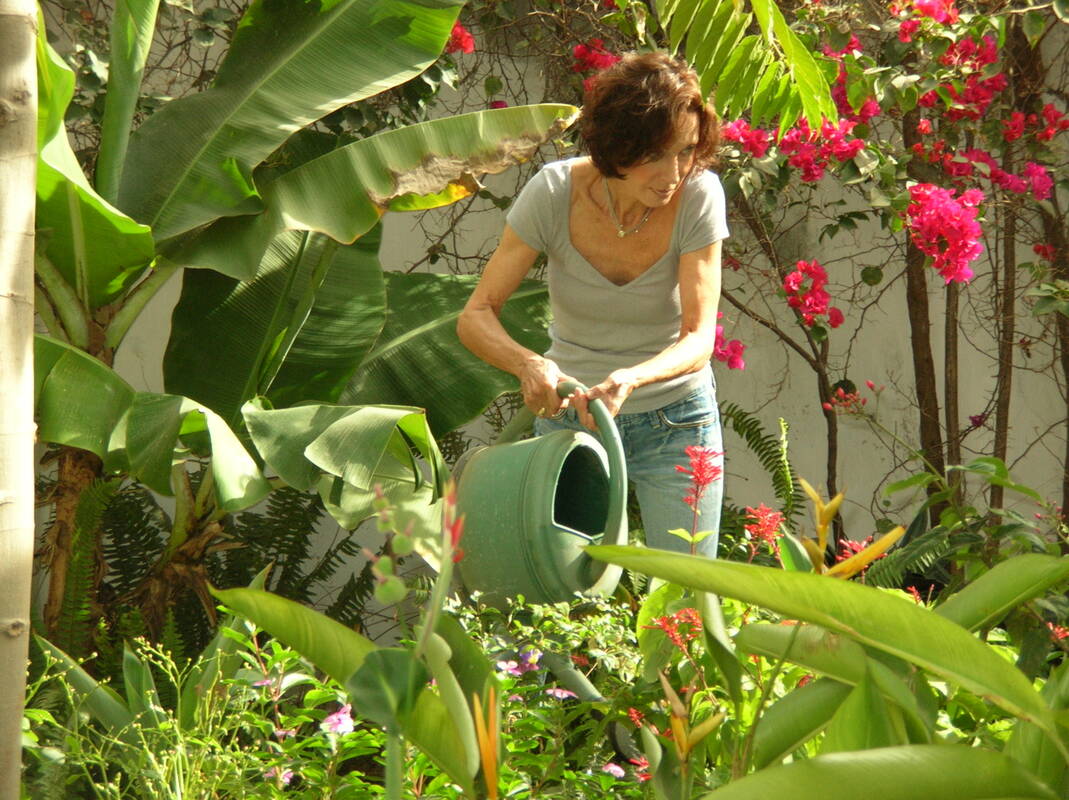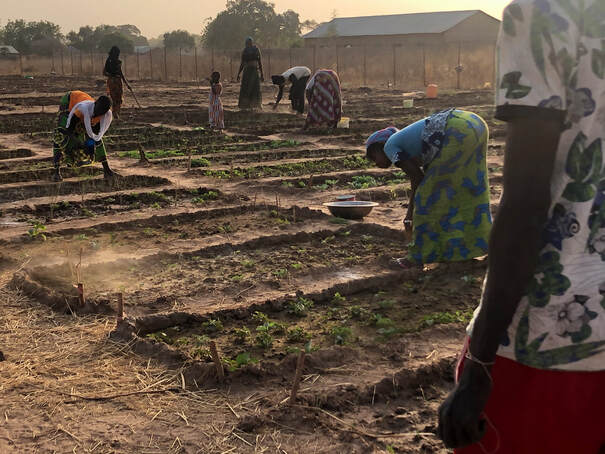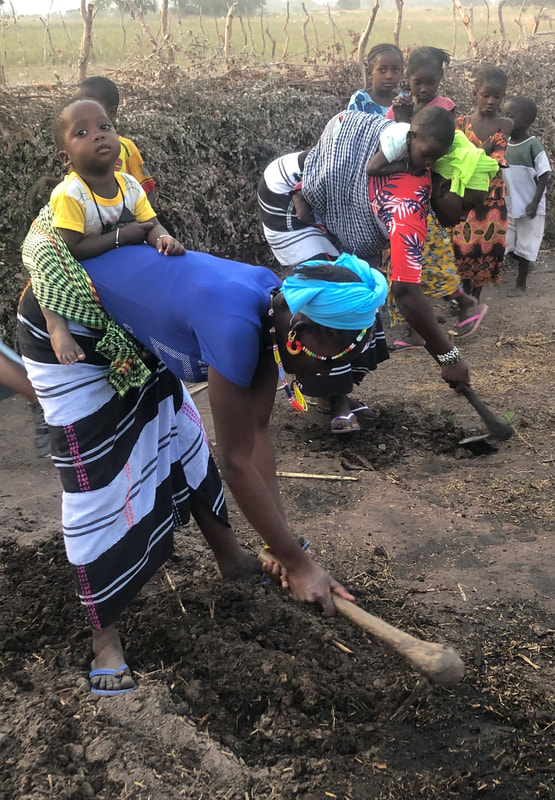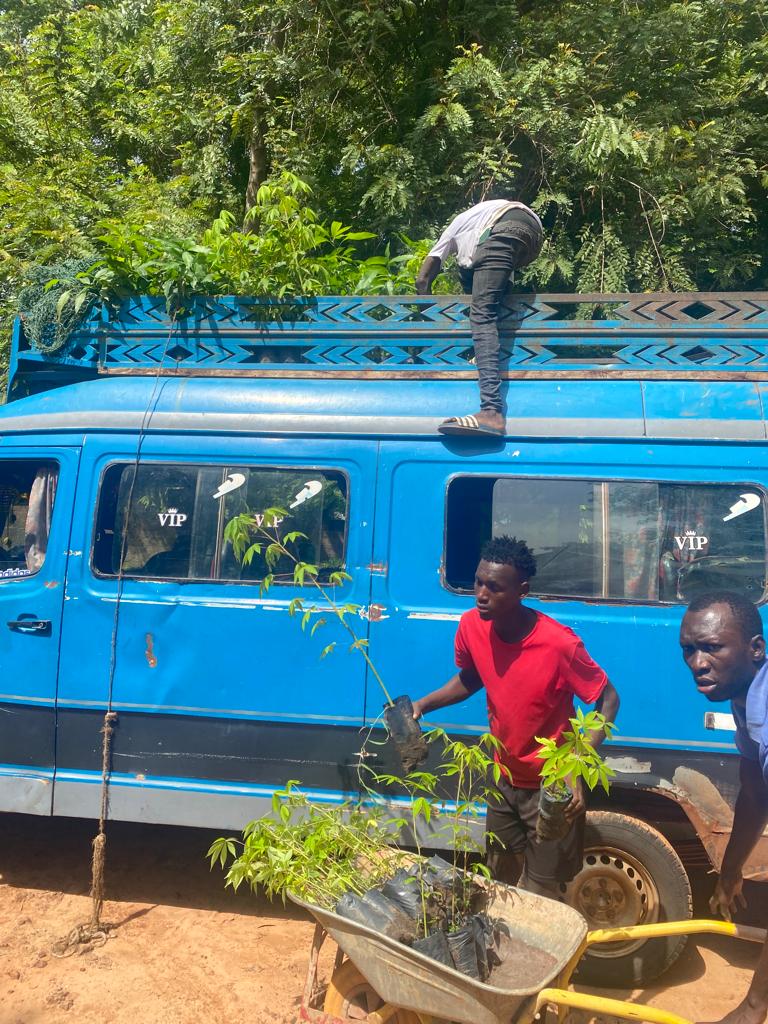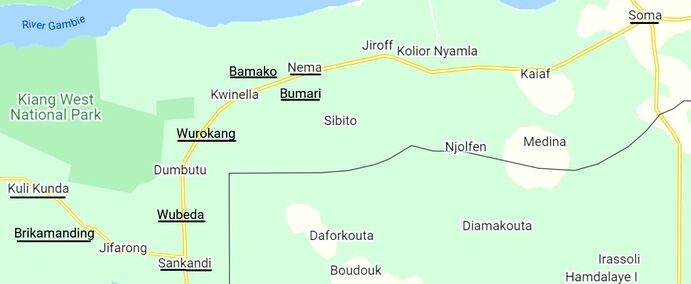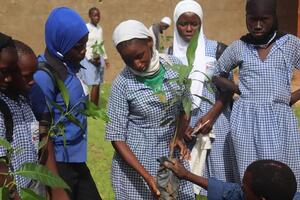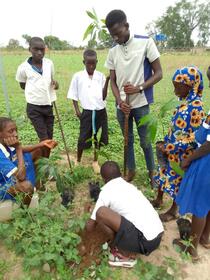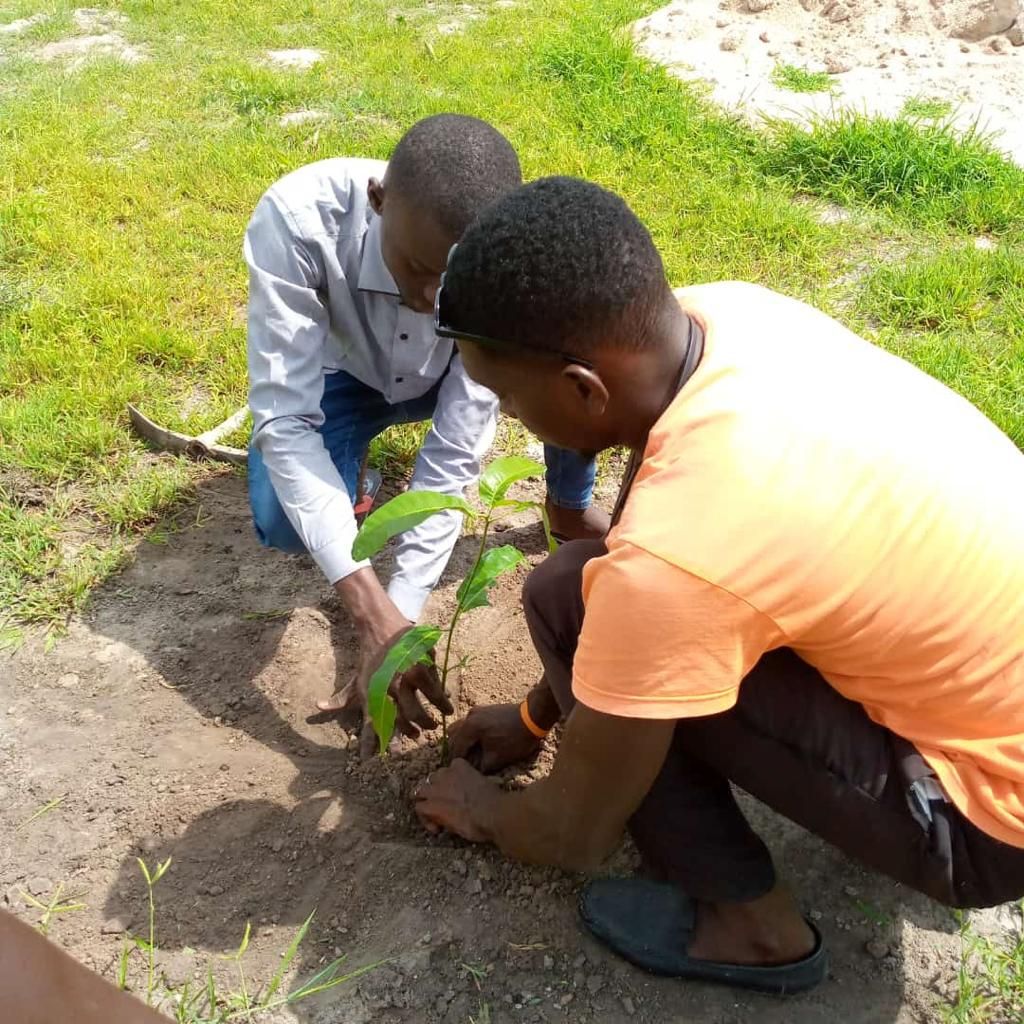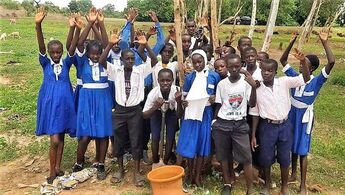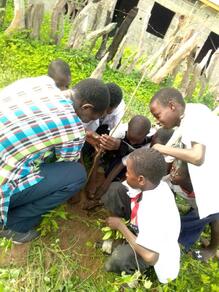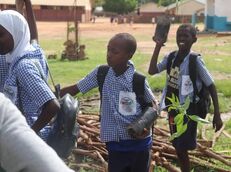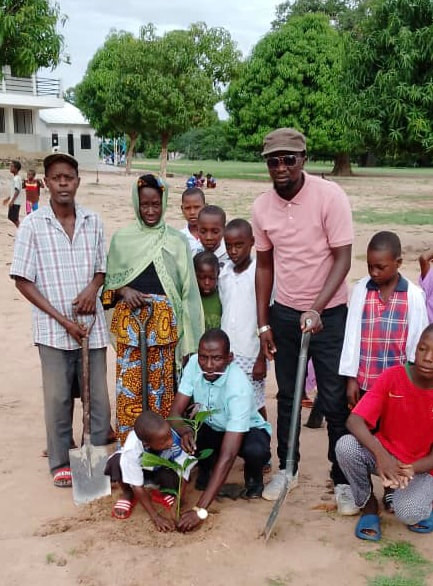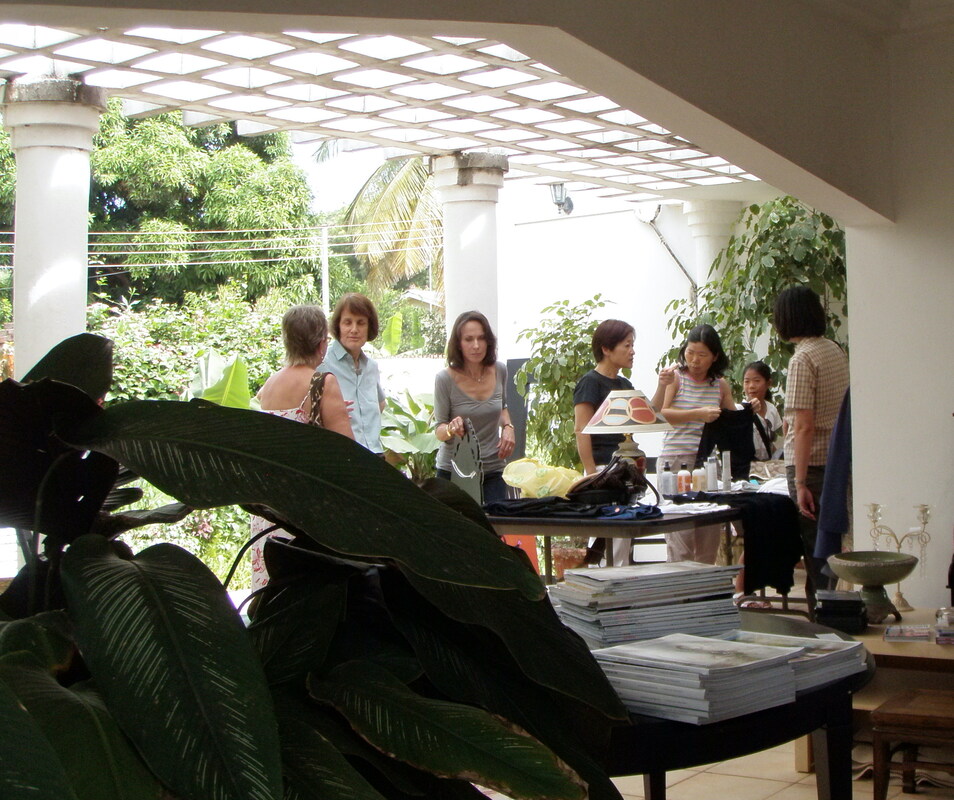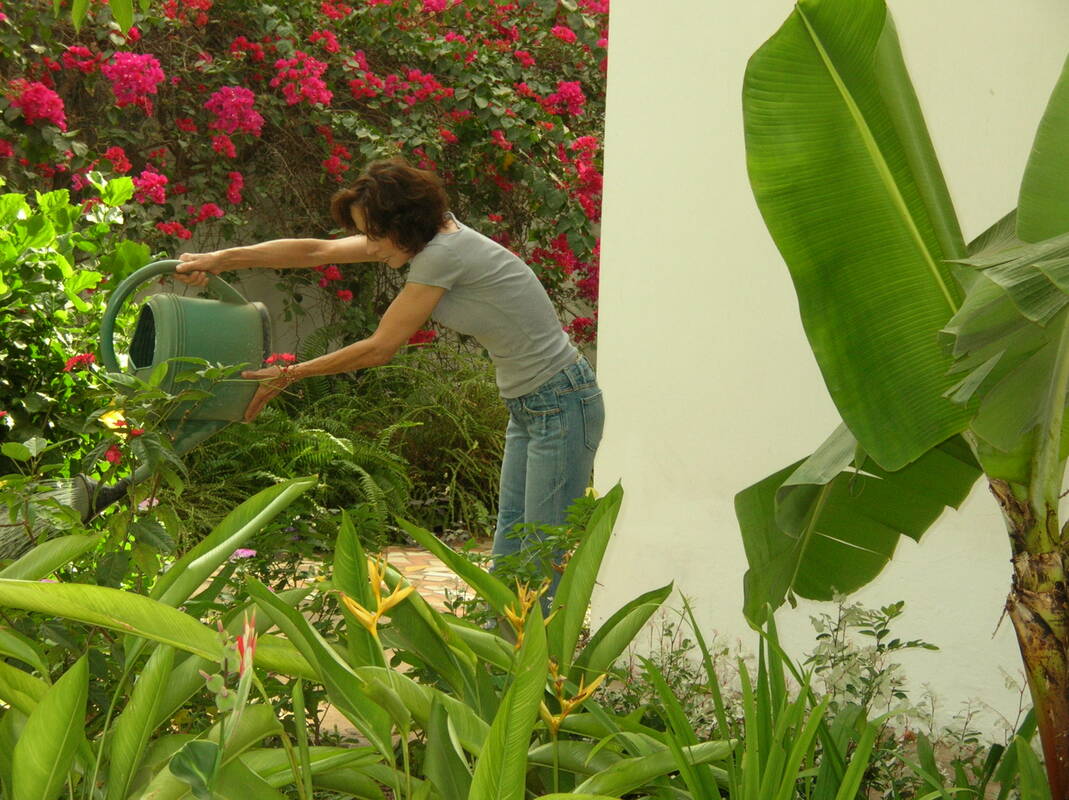Marilyn's Gardens
|
In 2007, Marilyn took a 3-year sabbatical from her private practice, and moved to The Gambia, where her husband Mike had been named Country Director for Peace Corps. When Peace Corps decided that she couldn't hold informal sessions with Peace Corps volunteers, she turned her attention to other things she loved: friends, cooking, and gardening. Working with Mafugi Sanneh, who had long tended the yard of the home that Peace Corps provided, over the course of three years, she turned their home in Fajara to a wonderland of flowers, fruits, even spices.
|
On more than one occasion, a hotel or restaurant would call Mafugi to see if we could spare some cilantro, or mint, or oregano. Bananas, lemons, limes, oranges, even cashews came from the garden. Vegetables too, although the war with pests was constant, and chemical pesticides were not allowed. Three colors of bouganvilla covered every wall. The varieties of flowers were more than they could name.
In rural Gambian villages, gardening is an important source of supplemental income for women. But gardening techniques have not changed much in the last one hundred years. In Marilyn's memory, her family is working with GambiaRising to fund tree planting and gardens at Gambian schools in the Lower River, Central River, North Bank, and Upper River Regions. Integrating trees into school gardens and schoolyards has benefits too numerous to mention, and growing vegetables and fruits in school gardens is essential to supplement the starch-heavy lunches at these rural schools. The best community gardens also become a social occasion for the women working there:
In rural Gambian villages, gardening is an important source of supplemental income for women. But gardening techniques have not changed much in the last one hundred years. In Marilyn's memory, her family is working with GambiaRising to fund tree planting and gardens at Gambian schools in the Lower River, Central River, North Bank, and Upper River Regions. Integrating trees into school gardens and schoolyards has benefits too numerous to mention, and growing vegetables and fruits in school gardens is essential to supplement the starch-heavy lunches at these rural schools. The best community gardens also become a social occasion for the women working there:
It was the season for planting trees, so GambiaRising worked with a nursery in Soma to purchase 600 seedlings; mango, gmelina, mahogany, cashew, and rosewood. 1/3 of these were delivered by donkey cart to schools in the Soma area; the rest were loaded atop a gelly gelly to be taken to schools in Kiang West.
For Phase Two, we have invited the Garden Masters of 15 schools from around the country to come to Bwiam for a special training in the Forest Garden techniques of our the wonderful NGO Trees for the Future, who began working in The Gambia several years ago. Trees evolved from Peace Corps' principles for sustainable agriculture and has demonstrated that including trees (fruit, nut, timber) in a family farm both diversifies the income and improves the soil. (Not to mention the oxygen and shade they provide!)
